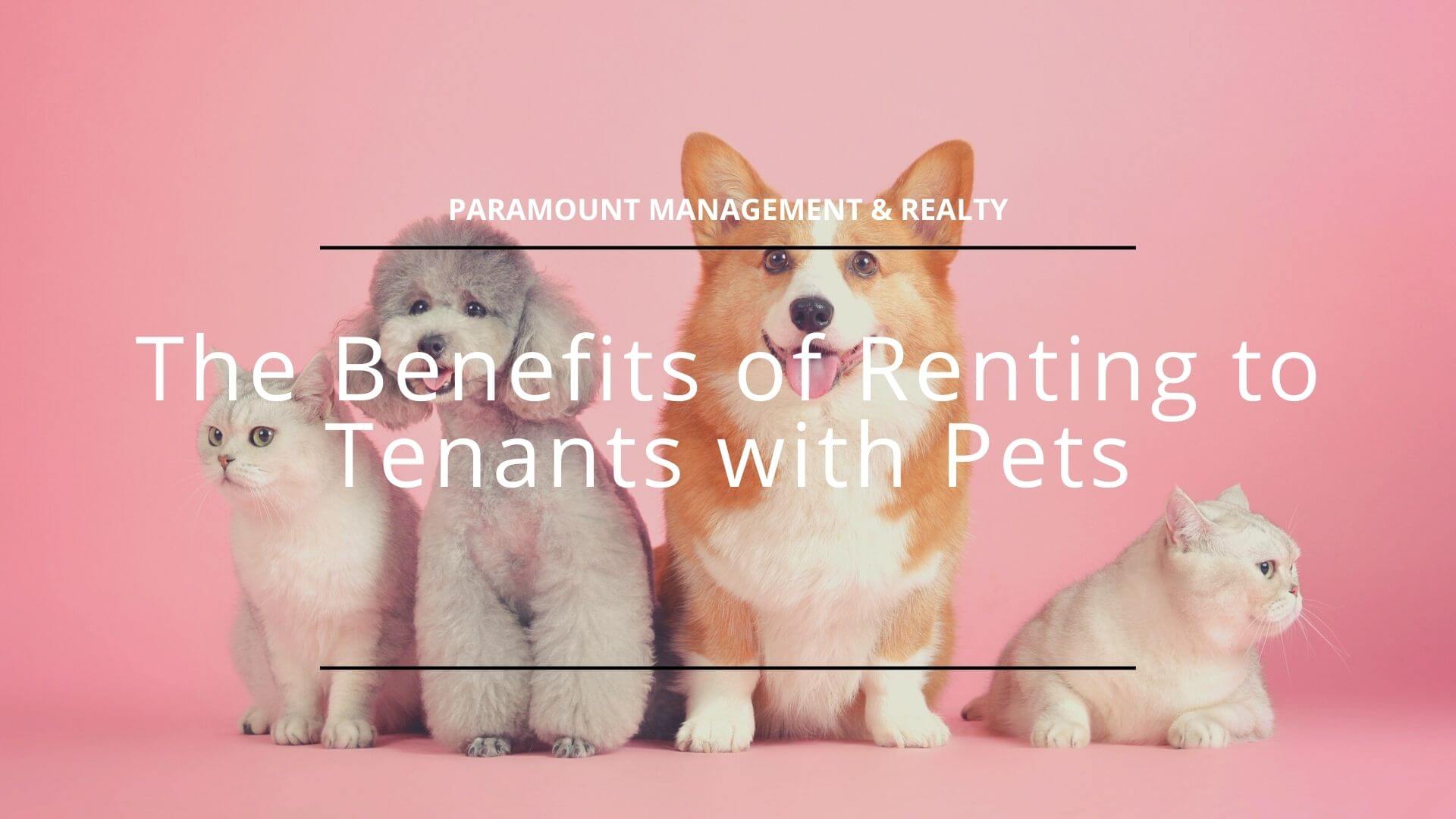
What's the defining characteristic of a good landlord? While there are many, there's one characteristic that stands out in particular: a good landlord is accommodating. Landlords who are flexible more easily acquire and retain long-term tenants.
As landlords know, long-term tenants are hard to find. For landlords who want long-term tenants, they must decide on a few fundamental policies beforehand. While this won't make the process easier, landlords will understand the pros and cons of their decisions. One of the policies that must be decided revolves around pets.
Landlords often have problems devising a pet policy. They go back and forth on whether they should allow tenants with pets or not. However, in the United States, 68% of households own a pet. It can be especially challenging for first-time landlords. This inevitably means that, if you have a strict no-pet policy, you will have a harder time finding a good tenant. The last thing a landlord wants is a vacant unit!
While there may be disadvantages of having a pet on the property, there are many advantages too. Having a lenient pet policy for tenants can increase the chances of finding a tenant. Tenants understand that finding a flexible and accommodating landlord is not a piece of cake and will jump at the opportunity to rent your property.
If you have a pet-friendly property, here's a list of benefits you can enjoy:
More Tenants
As we’ve explored, more than half of the population today owns at least one pet. There are only a handful of people out there who would prefer going for a property with a no-pet policy. Therefore, the first benefit of allowing pets is that landlords can attract more tenants.

By being flexible and giving permission for pets, landlords can make their property look more appealing. Tenants are more likely to renew their rental lease as well.
Pet Deposit
Landlords with favorable pet policies make more money by including pet fees or pet deposits in the rental contract. There are even landlords who only rent to tenants with pets since it’s more profitable!
Many landlords have increased the income by around 5% by allowing pets. The extra money is more than sufficient for any repairs and damages that pets might cause on the property.
Moreover, landlords usually charge a fee per pet. So if someone has more than one pet, landlords can earn double the amount. It’s a win-win.
Responsible Tenants
Most landlords believe tenants with pets are more responsible as compared to those without any pets. This is because taking care of a pet is not an easy task. Pets must be fed on time, examined regularly by doctors, given the right food, and so on. As such, tenants who take care of their pets are more likely to take care of the property as well. Responsibility carries over.
Long-Term Benefits
Tenants with pets are more likely to renew the rental contracts and stay longer in one place. This is a great benefit as the landlord would not have to worry about finding another tenant once the contract is over. Moreover, it’s known that tenants with pets cause less property damage over time.

Happier Tenants
Research has shown that pets are likely to reduce stress levels. Imagine coming home from a long day at work and having your pet cuddle you and make you feel important. This is definitely a stress reliever. Having a pet around can make your property feel more warm and homely. Therefore, tenants are more likely to stick around than move out after the lease contract expires.
Almost No Vacancies
Many property investors believe that high vacancy rates create several challenges for landlords. If the property remains empty for a long period, the landlord will have a harder time managing it without a rental-based income.
To avoid spending the extra cash, it’s important to make sure your rental property is profitable long-term. Pet-friendly properties have lower vacancy rates.
There are two reasons for this: firstly, there are fewer rentals that allow pets. It's extremely difficult for tenants to find a house that will welcome their pets. A landlord who allows pets will catch the interest of more prospective tenants. Secondly, pet owners are likely to stay in a house for longer durations. As such, landlords will get a long-term tenant.

Bottom Line
Landlords who want long-term tenants will benefit from incorporating a pet-friendly rental policy. There are a few disadvantages, but many advantages to offset them and benefit the landlord.
Finding a good long-term tenant is not easy. However, tenants with pets are not only more responsible, but they’re also more likely to stay longer on your property. Consequently, landlords get a steady income as their property remains occupied. They don’t need to worry as often about having to search for a new tenant once the previous contract ends.
Above all, the pet deposit fee is an added bonus. Many landlords get extra income by allowing pets on the property.
If landlords have any additional concerns, they can also ask the tenants any questions about their pets beforehand. By doing this, it'll allow landlords to be more comfortable with pets on their property and will relieve them of any extra tensions.
Ultimately, having a pet policy is something landlords should consider for both their own benefit and that of their tenants. Paramount Management & Realty can help you decide if this is the right choice for you!



